Search
Search Results
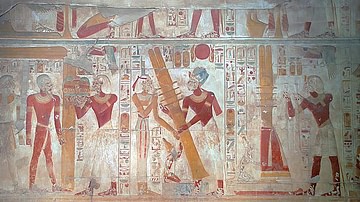
Collection
Ancient Egyptian Gods
The worship of Egyptian gods dates to the Predynastic Period in Egypt (c. 6000 to c. 3150 BCE) but is no doubt much older as the veneration of these deities was already established in rudimentary form through rock carvings dated to c. 6000...

Quiz
Egyptian Pyramids, Hieroglyphics, & Art
Egyptian Pyramids, The Sphinx, Egyptian Art, Egyptian Symbols, Egyptian Architecture, Egyptian Hieroglyphics, The Rosetta Stone
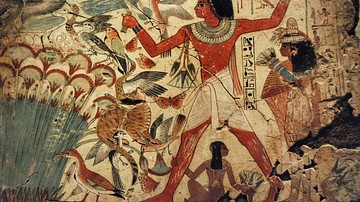
Image
Egyptian Hunting in the Marshes
These paintings from the tomb of Nebamun (c. 1350 BCE) show the New Kingdom period accountant Nebamun hunting birds in the marshes of Egypt. He is accompanied by his wife and daughter. Scenes like these of the deceased enjoying himself were...
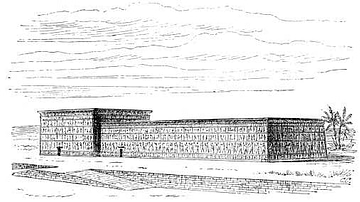
Image
Egyptian Temple
General appearance of an Egyptian Temple.
From A History of Art in Ancient Egypt, Vol. I by Georges Perrot and Charles Chipiez (1883).
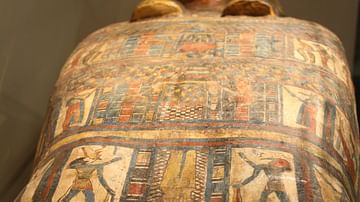
Image
Egyptian Sarcophagus of Tetet
Cloth-covered, plastered and painted wood anthropoid coffin of Tetet, 22nd-24th Dynasty.
Egyptian Museum, Castello Sforzesco, Milan.
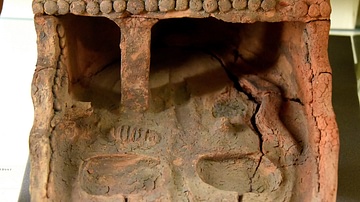
Image
Egyptian Pottery Soul House
Redware pottery depicting the so-called "soul house", from E-Kab, Egypt, 11th to 12th Dynasties, 2024-1700 BCE. It has flattened pellets representing a loop of wood. One of the two pillars which supports the roof is lost. Mr. Petrie thought...

Image
Egyptian Beadnet Dress (Detail)
Egyptian beadnet dress from the reign of Khufu, 4th Dynasty, Old Kingdom of Egypt, 2551-2528 BCE. This beadnet dress is the earliest surviving example of a garment with the lozenge pattern. This pattern is frequently used when depicting...
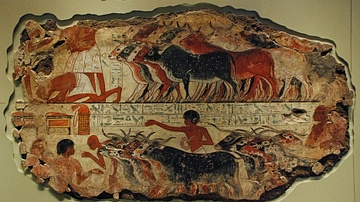
Image
Egyptian Cattle Herd
This painting shows Egyptian cattle being counted by scribes. The painting found part in the tomb of Nebamun (c. 1350 BCE), an wealthy Egyptian accountant ("scribe and counter of grain") during the New Kingdom period. The paintings are...

Image
Egyptian Stela of Horemheb
Only this fragment from the top of a round topped limestone stela has survived. There are 3 columns of hieroglyphic inscriptions; these state that the stela was "made by the guardian of king's provisions of the Lord of the Two Lands Horemheb"...
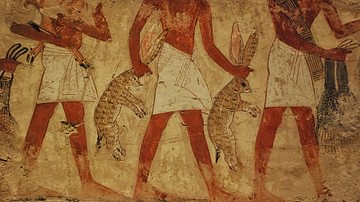
Image
Egyptian Desert Hare Hunting
An Egyptian servant is carrying two desert hares as an offering to Nebamun, a rich Egyptian accountant. Detail of a larger procession of agricultural offerings, from the tomb of Nebamun (c. 1350 BCE).
The British Museum, London.